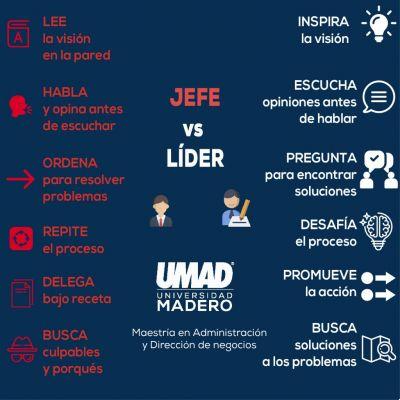Recognizing that we do not know everything and that we are not the custodians of the absolute truth means putting into action intellectual humility. This ability is crucial for personal and social growth.

Last update: May 08, 2021
We often make the mistake of thinking that our point of view is the most correct and that we are the repositories of the absolute truth. On certain occasions we can even go so far as to claim that we are experts in a subject and that no one knows more than we do. In these cases, what about intellectual humility?
It can happen because we have years of experience, because we have dedicated ourselves to the study of a specific topic or simply "because it is so", as many say, and we leave no room for any doubt.
We lock ourselves in our beliefs and it is impossible to move. È as if we were awarded the universal expert award and we label any objection as nonsense.
There are those who cling to the belief that they know everything about a topic and those who, on the other hand, prefer to navigate the ocean of indecision or at least be open to what others have to say. The truth, however, is that people often don't have enough intellectual humility.
"Humility is not thinking less of yourself, but thinking less of yourself".
-C.S. Lewis-
What is intellectual humility?
We have a bad habit of overestimating what we know. We take our beliefs true and we despise what others offer us. Instead of seeing a chance for enrichment, we see an attack.
Generally, we believe we are better or more precise than others, and this can be seen more clearly in political and religious contexts or when it comes to lifestyles.
In relation to this ability to put a blindfold on to be intellectually blind, the journalist and writer Nicola Cusano said: "If you choose one of the many truths and blindly pursue it, it will turn into a falsehood, and you into a fanatic".
And he wasn't wrong. Becoming slaves of a belief and giving it the power of absolute truth prevents us from growing personally and socially. Ultimately, it limits us.
Faced with this panorama, it appears that scientists have discovered - or indeed unearthed - a concept, or antidote, known as intellectual humility. It is about the ability to be flexible in the field of knowledge, or to be open to new ideas.
Intellectual humility is the tendency to be receptive to other points of view, to accept that we can be wrong, and to cultivate an open mind.
Origins of the concept of intellectual humility
This concept, which at first glance might be a novelty, has its roots in Socrates and later in the philosopher and theologian Nicola Cusano:
- In Plato's Dialogues we read that Socrates constantly sought the truth and recognized his ignorance as a starting point for finding the aforementioned truth. One of the most famous quotes of him is precisely "I know I don't know".
- By Nicol Cusano we can cite the work The learned ignorance. In it the philosopher tells us that, because of human or cognitive limitations, it is not possible to obtain absolute knowledge even if you want. The wise person, therefore, is aware that he is ignorant of more than he knows. And being aware of this he is learned. Hence the learned ignorance.
Intellectual humility it is configured as the intermediate point between believing that you know everything and believing that you know nothing; it mediates between intellectual arrogance, typical of rigid minds, and intellectual cowardice, the result of extreme shyness.
Rigid minds: the illusion of knowing everything
Being humble on an intellectual level means being able to recognize that we don't know everything and that what we think we know may be wrong. So why are we seeing so much intellectual egotism today?
Though personal traits may be the biggest culprits, according to University of California psychologist Tania Lambrozo, technology increases the illusion of knowledge.
Access to any information with a simple click creates the illusion of having infinite knowledge on every area at your fingertips. If we add to this the ease in remembering an image, a word or an information, the impression of having learned successfully will be greater.
On the other hand, mental rigidity is one of the personality traits most related to intellectual self-centeredness. It is the tendency to reject formulations or ideas other than one's own, closing oneself behind the bars of one's own mental schemes.
The rigid-minded person tries to adapt the world to his thinking, rather than doing the opposite. Often this is due to the need for cognitive closure, or the desire to eliminate any semblance of uncertainty that comes from a thought or a situation.
This would imply a lack of control over the situation. And we remember that uncertainty is one of the greatest enemies of the human being.
"Great minds discuss ideas, mediocre minds discuss events and small minds discuss people."
-Eleanor Roosevelt-
How to cultivate intellectual humility
We need to be willing to learn about other perspectives and other topics, and certainly to welcome changes. Because le ideas that yesterday we considered certain, today could be wrong or overcome, who knows. But how to do it?
Although different strategies allow us to cultivate intellectual humility, it is necessary first of all to silence one's ego and drop him off the pedestal. To this end, it is necessary to admit that we are sometimes victims of cognitive distortions and slaves of our beliefs.
Opinions, ours and others, vary according to circumstances and our personal growth. Because how many times have you found yourself doing or saying things that you did not do or think about before?
If we wish to plant the seed of mental flexibility to cultivate the fruit of intellectual humility, we can:
- Accept that we can be wrong, that we can get confused.
- Practice active listening. Clear our minds of thoughts when others speak to us and focus on the conversation. We will therefore have to fight against the tendency to think about what to say when the interlocutor has stopped talking.
- Respect the views of others. We don't always have to agree with what others tell us, but we have to respect their opinions. Often, we fight a war that rarely has a winner: one in which we try to convince the other; usually the opposite happens. The other sticks to his ideas and we to ours. So you absolutely need to know when to stop.
- Be willing to learn from others. Flexibility and curiosity, the two fundamental ingredients for learning and to fight against stiffness. Because if we don't learn from others, who will we learn from?
- Ask us questions every now and again. An exercise that develops intellectual humility is to ask ourselves questions about our beliefs and especially about our need to be right. Why do we always want to be right? The answer to this question can give us a clue.
- Traveling or learning about other cultures. Discovering other lifestyles, other ideas and habits, even if at first glance it may surprise us, helps to broaden our perspectives. Plus, it's a good way to train our brains to look for alternatives.
Conclusions
The most important scientist of the twentieth century, Albert Einstein, whose IQ was 160, also had in mind the concept of intellectual humility. His statement is proof of this "A true genius admits that he knows nothing".
We can say the same of Benjamin Franklin, who used to start an argument by saying the words: "Maybe I'm wrong, but ...".
Intellectual humility is one valid ally against attachment to our beliefs and grow on a personal and social level. The key that opens the doors of learning to us, the antidote to bullying.
This skill reminds us that relationships are not based on imposition or demand, but on the understanding, flexibility, respect and enrichment that come from knowing other points of view.


























